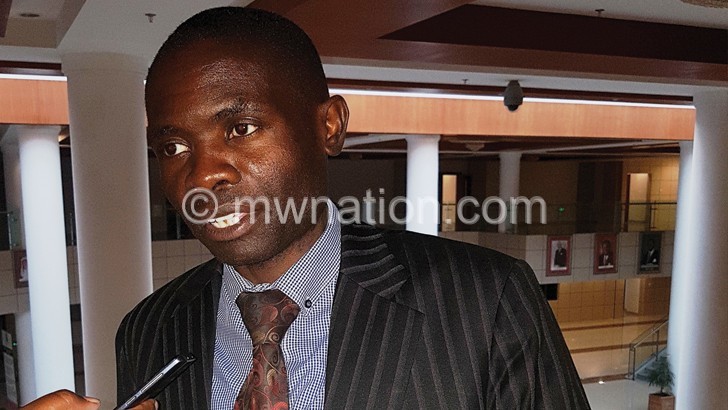Health PS asks NGOs to be accountable
Ministry of Health Principal Secretary (PS) Dan Namarika has asked non-governmental organisations (NGOs) to be transparent in their projects and strive to leave a legacy once their project period has completed.
He made the call yesterday during the official launch of the Elizabeth Glaser Paediatric Aids Foundation (Egpaf) Catalysing Paediatric Tuberculosis Innovation (CaP TB) in Malawi project.
Namarika’s reaction came in response to a question on the cost of the project as the foundation did not disclose the actual cost in its presentation.

He said: “Most organisations are asking government to be accountable, but they themselves are not accountable to government. For the donor community who are giving us funds they believe that the money goes to Malawi Government but in some cases the overhead costs are huge. So you find an institution has money for us but in actual sense 30 percent of it goes back to the organisations. Some even 60 percent, so where is the transparency and how much is the cost of this project?”
The CaP TB project seeks to identify, assess and set in motion plans to scale up new improved tools for diagnostics, drugs for treatment and models of service delivery.
Namarika said catalysing or increasing detection of TB and managing TB in children is a problem and in children it is worse because they don’t produce sputum that is used to diagnose it; hence, the innovation from Egpaf will help reduce the burden.
Egpaf country director Veena Sampathkumar said they aim to bring the possible treatment to kids and ensure they are healthy.
She said: “To answer the PS’s question, the project is $1.1 million for a period of four years in seven districts of the country. We are working closely with the Ministry of Health and we believe in equity so that every child is protected, treated and are healthy.”
CapTB is a four-year project funded and supported by Unitaid which aims to reduce paediatric TB morbidity and mortality in nine sub-Saharan African countries and India.
In Malawi, the project will be implemented in Mchinji, Dedza, Ntcheu, Mwanza, Blantyre, Chiradzulu and Thyolo districts with five objectives, thus: creating an enabling policy and regulatory environment, introducing effective and innovative models of care to improve detection of paediatric TB cases, increase access to improved paediatric TB treatment, generating novel evidence and ensure that childhood treatment is integrated in national systems.
Globally, an estimated one million children are in need of TB treatment, yet only 39 percent are diagnosed and reported to national TB programmes. Little has been done to expand access to case identification, innovative diagnostic tools or child-friendly treatments that are now available.
According to the National TB Control Programme, in 2016 the country registered 16 959 TB cases where 8.6 percent was paediatric.





